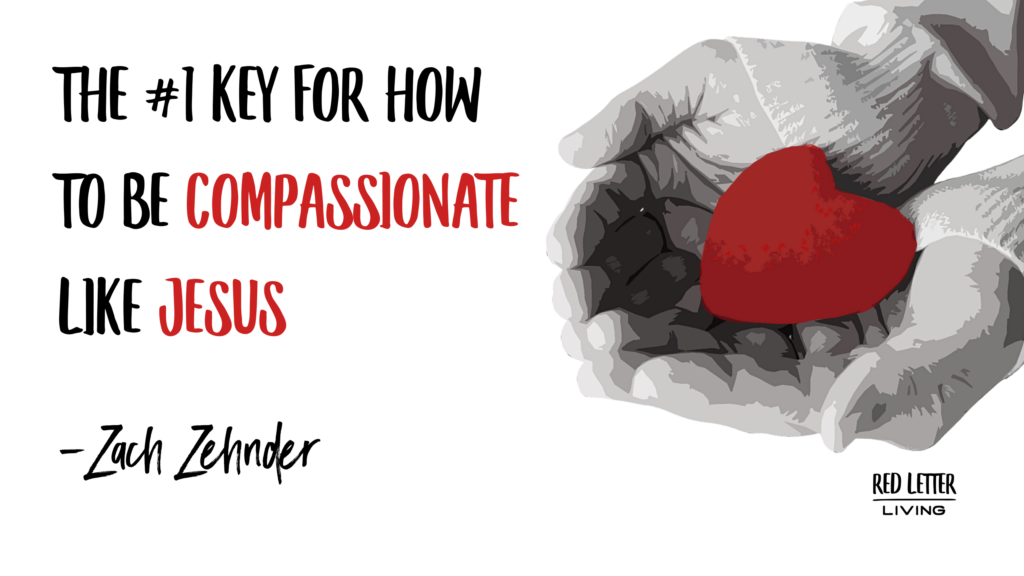

“Compassion fatigue” is a relatively new term. It was coined in the 1980s and is defined as an “indifference to charitable appeals on behalf of those suffering, experienced as a result of the frequency or number of such appeals.”
To keep up with all the news is a full-time job and many are walking away from the modern-day news cycle. Journalist Amanda Ripley, writing for the Washington Post, said that over 42 percent of Americans say they actively avoid the news. She cites that “part of the problem is today’s news is not designed for humans.” I think what she’s saying and what we are all feeling is that it is just too much to see and hear all the negativity, suffering, and injustices in our world.
I get it. It’s exhausting. It can feel overwhelming. Someone shared with me the other day that those who are high-school age have grown up every single year with a school shooting. This is normal for them. But this is not normal. This is a result of the world’s brokenness.
A long time ago, the only poverty you knew about was the poverty you saw. The only natural disasters that affected you were local ones. The only divorces you knew about were the families you were in relationship with. Today, the quantity of negative news can easily lead each of us to feel desensitized, or helpless, in solving the world’s problems. Rather than entering into the world’s injustices, I’ll admit it’s easier just to remove ourselves.
The problem with removing ourselves from the world’s injustices and pain is that we are Christians. The Christian way is not to remove yourself from problems, but to enter into the world’s problems and bring the hope of Jesus.
But how do we do this?
Sadly, for many, the answer is nothing more than to feel sorry for someone. But, is that really compassion? The answer is no.
“Slacktivism” is a relatively new term that combines “slacker” and “activism.” It is the practice of supporting a political or social cause that involves very little effort or commitment. Studies show that those who engage in particular causes on social media by clicking, liking, or sharing actually end up being less likely to donate time or money to the very cause they supposedly support.
Kris Kristofferson, who led a study for the University of British Columbia, states, “Our research shows that if people are able to declare support for a charity publicly in social media it can actually make them less likely to donate to the cause later on.”
I wonder, though, if this hasn’t crept into the Church as well. The danger in our social-media-crazed world is that we often attribute feeling compassionate with actually being compassionate. But is feeling compassion enough?
As we study Jesus, the most common emotion attributed to Him is compassion. His compassion drew others to Him. But amazingly, when you look at the stories that feature the compassion of Jesus, Kyle Idleman points out there is something that shows up time and time again after compassion. He says, “The conjunction ‘and’ almost always follows His feeling of compassion.” Idleman then points out several stories where this happens. Here are a few:
So, what do we see in the life of servant Jesus?
True compassion is more than a feeling. Shockingly, the Oxford Dictionary claims that the opposite of compassion is indifference. To practice compassion means that whatever is happening on your inside must elicit a response on the outside.
Returning to Idleman’s words, “The test of compassion is in the and.”
True compassion is a feeling followed by an action.
If we are to embody the way of Jesus as a servant, it is not enough for us to just feel compassion toward the world’s injustices. We must act on it, or we prove to be no different than the ordinary person in the very world in which we are called to stand out.
I believe that many of us genuinely want to help those in need. So, why then do we struggle with this? I want to offer three reasons from my own life:
Compassion fatigue leads to a never-ending news cycle that highlights injustice and negativity. It’s so easy to get overwhelmed. It typically forces me to end up asking a series of intrinsic questions. Here’s a few that go through my brain:
When I start down this line of thinking, many times I never actually do anything except feel sorry on the inside.
There may be an opportunity for me to serve someone that’s right in front of me, but I might shrug it off and think that someone else who is better equipped will take care of it.
I’m a big believer in finding out how each of us is uniquely gifted so we can make our biggest difference in this world. But I can get so caught up in my “strengths” or “gifts” that I miss out on an opportunity to be obedient and serve the person right in front of me. I must not believe the lie that someone else is far more equipped to help serve that person.
A lot of people with good intentions never do anything. Intention is a good thing, but intention without a plan is honestly quite worthless.
Intention without direction leads to confusion. But intention with direction leads to transformation.
Two things will help to go beyond intention.
One is to plan and partner with a church or organization on a regular basis for a serving opportunity. If I don’t do this, I will revert to comfort every time.
The other is to pray every day for God to show me opportunities to serve. When I keep serving front and center in my mind, it shows me that I don’t have to go overseas to serve. There are a ton of things I can do right now in my context to serve.
Can I be real with you? Just putting the concept of serving like Jesus before me while preparing my new Serving Challenge book has opened my eyes to more serving opportunities than I would have ever known.
So, what does this mean for you? Each of you will have to diagnose this. But I know I’m feeling convicted today of one particular area where I have failed in the past to practice compassion. I have not always known my place and role in helping the Church fight against racism. My heart often stirs up against this injustice, especially for those in the black community. But because I am a white, 40-year-old, blue-eyed, blond-haired, middle-to-upper class, 6-foot male, I haven’t always felt equipped in this battle. Thankfully, I have friends and allies in the black community who help me see more clearly. I do have a role and a part to play.
It’s time for the disciples of Jesus to step into the “and.” Feel for people “and” do something. If we always wait on someone else to do the work, so many injustices will continue to spiral downward right in front of our very eyes.
Thankfully, God didn’t just feel sorry for us. But He acted. He came down, died, and rose from the dead to rescue and redeem us. And now, He calls us to do the same. Let’s do this!
The blog for today was taken from a devotion from our upcoming Serving Challenge. If you’d like a resource that will move you and your church to serve more like Jesus, this is a phenomenal resource for you! And good news, you can preorder for your church right now and get in the First Wave at this link. Many churches are launching October 1, 2023.
